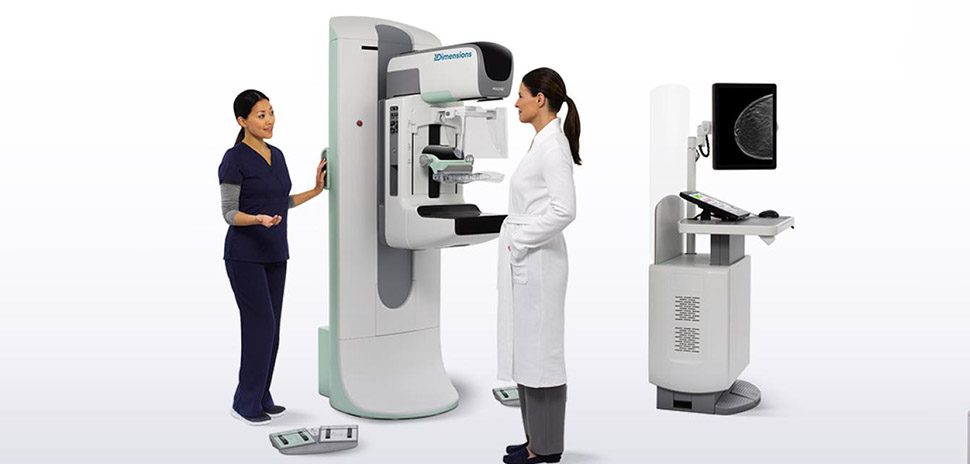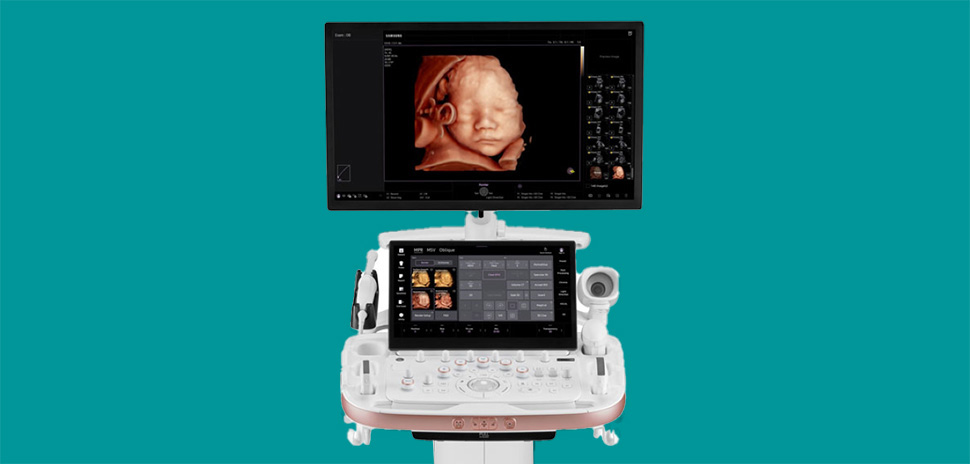
Hologic’s 3Dimensions mammography system [Photo: Hologic]
San Francisco- and Fort Worth-based investment firm TPG is teaming up with New York’s Blackstone to acquire medical-technology company Hologic Inc. (Nasdaq: HOLX) in a deal valued at up to $18.3 billion.
The transaction represents a 46% premium to Hologic’s closing price on May 23—the last full trading day before media reports of a potential transaction involving Hologic—according to the companies’ joint announcement. The deal also includes minority investments from a subsidiary of the Abu Dhabi Investment Authority and an affiliate of GIC.
“Investing behind healthcare innovation has been a core focus for TPG for decades, and Hologic represents a compelling opportunity,” said Dr. John Schilling, co-managing partner of TPG Capital, in a statement. He added that TPG plans to draw on its “deep thematic expertise” to support next-generation medical technologies that improve health outcomes for women worldwide.
Stephen P. MacMillan, chairman, president, and CEO of Hologic, said the partnership will accelerate the company’s mission and deliver strong value to shareholders.
“With their resources, expertise, and commitment to women’s health, Blackstone and TPG will help accelerate our growth and enhance our ability to deliver critical medical technologies to customers and patients around the world,” MacMillan said.
Blackstone Senior Managing Director Ram Jagannath said his firm has long followed Hologic’s progress. “Hologic is an outstanding global leader in advancing women’s health,” he said, calling its diagnostic and medical-device products “life-changing technologies” for millions of patients worldwide.
The deal is expected to close in the first half of 2026. Upon closing, Hologic’s common stock will be delisted from Nasdaq. The company will keep its headquarters in Marlborough, Massachusetts, and continue operating under the Hologic name and brand.
In a separate announcement, Kirkland & Ellis LLP, which advised Blackstone and TPG on the transaction, said the deal carries an enterprise value of up to $18.3 billion. Under the terms of the agreement, Blackstone and TPG will acquire all outstanding Hologic shares for $76 per share in cash, plus a non-tradable contingent value right (CVR) that could deliver up to $3 per share in two potential payments of $1.50 each. Those payments would depend on meeting global revenue goals for Hologic’s Breast Health business in fiscal years 2026 and 2027, the law firm said.
Kirkland & Ellis also noted that the Hologic board of directors unanimously approved the merger agreement and recommended that shareholders vote in favor. The transaction remains subject to shareholder and regulatory approvals and is expected to close in the first half of 2026, subject to customary closing conditions.
Quincy Preston contributed to this report.
Don’t miss what’s next. Subscribe to Dallas Innovates.
Track Dallas-Fort Worth’s business and innovation landscape with our curated news in your inbox Tuesday-Thursday.
R E A D N E X T
Dallas is aging faster than ever, with seniors facing rising challenges of isolation, health, and care. Technology, when designed with empathy, can bridge these gaps – connecting families, empowering caregivers, and enabling prevention. By building tools with empathy, we can transform elder care from survival to peace of mind and joy.
The Dallas maternal-fetal medicine practice calls Samsung’s Hera Z20—which uses advanced AI and other features to enhance diagnostic accuracy—a “pre-natal game changer for women’s health.”
Led by a James Beard Award–winning chef, the 20-course experience will unfold inside a 9,500-square-foot warehouse, with projection-mapped dining rooms and just 26 seats per seating. It’s all part of what the founders call a love letter to Dallas.
Career Grand Slam golfer Rory McIlroy and his business partner, Sean O’Flaherty, will serve as operating partners for the newly launched TPG Sports strategy, contributing to sourcing investments and value creation across the portfolio.
Four North Texas community colleges and the DFW Hospital Council will use a federal grant to expand training, boost equity, and meet the region’s growing demand for health care workers.




